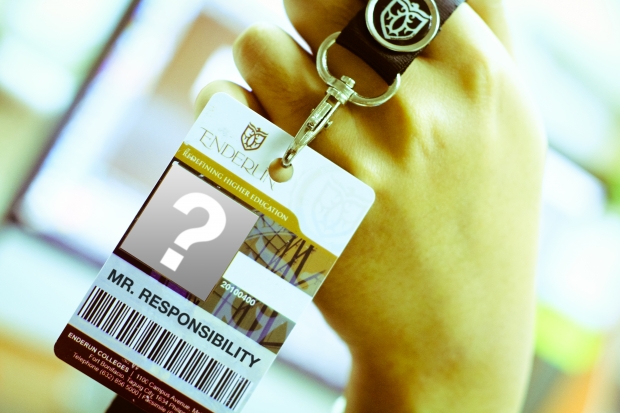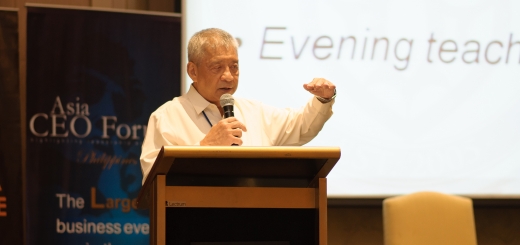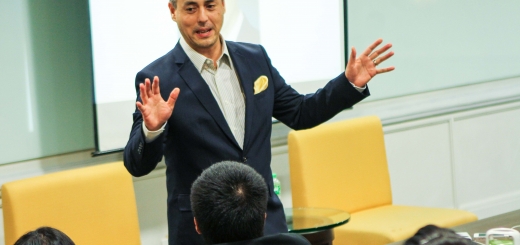Opinion: The Search for Self-Accountability
The current crop of Enderun students is part of the generation composed of people born between 1980 and 2000 (depending on whom you ask), and are therefore termed “millennials”. The members of this group have been characterized as “narcissistic, overconfident, entitled, and lazy.” Millennials have come of age in an era where everything is quantifiable, including appreciation, and that is best measured by the number of Facebook friends, Twitter followers, and Instagram likes.
The members of the millennial generations have been described as so entitled that they believe other people should be held accountable for their own personal growth, and they are so convinced of their greatness and of their special qualities that they feel that they deserve every possible opportunity under the sun. They want to bypass the system and gain success instantly. They even want to create an entirely new system for themselves in order to avoid the old, outdated one. They prefer to make excuses rather than be accountable for their actions.
What, then, makes self-accountability so important? First things first: here is a definition of self-accountability. One is accountable to oneself when one acknowledges responsibility for one’s actions and decisions, and when one faces the consequences that follow from the aforementioned actions and decisions.
In practice, self-accountability works in the following way. A student is barred from entering the BA building because he or she was not wearing his or her ID, which resulted in the student gaining a demerit slip or cutting class. Self-accountability means that that student knows that he or she has done something wrong for not bringing that ID, and doesn’t waste any time complaining about the cut class or blaming it on the school administration for imposing and implementing the rule or the guard who is doing his duty by following his employers.
Self-accountability defines who that student is in the dark; it includes who that student is and what he or she does when no one is watching. It is the decision in the making of what path a person would choose to follow – it is a package deal that when one chooses, he must be able to take on all the ups and downs that come along with it. After all, did he not choose his route? And should he not be responsible for that decision?
What is self-accountability for? Where will it take you? What would a student gain from fulfilling the obligation to wear the complete Enderun uniform, and what would that student lose from ignoring that obligation? Failing to have self-accountability means failing to see the big picture. Would Enderun have the reputation it enjoys now if its students wore sloppy and improper uniforms? Would a student have access to more career opportunities all over the world without the idea that Enderun is a source of professional, driven, and capable future industry leaders – an idea which the uniform is designed to convey? Not just millennials but everyone has to realize that self-accountability is needed: that their actions affect not only their own futures but that of others, too. Take a step back and try to imagine what it would feel like if you entered a school where every person was disciplined and followed the rules & regulations. Imagine seeing groups of young individuals all dressed confidently in their corporate uniforms embodying the school’s statement that “Enderun aims to graduate students with professional competencies, and character” – would it not make you aspire to be a part of the Enderun community? In the manner of self-accountability, every decision you make will leave an impression on someone else, so try and make it a good one.
Talking about self-accountability also leads to talking about commitment. A student who enrolls in Enderun makes a commitment to abide by the rules and regulations stipulated in the Student Handbook. That student, if not accountable enough to ensure that his or her actions are in compliance with those rules and regulations, must face any measures that the school and its administrators must take in order to foster and enforce that same commitment.
In the Student Handbook, Enderun makes a commitment to its students “by providing a wealth of opportunities for personal growth and development, both inside and outside the classroom.” In return, “it expects its students, as the ultimate ‘owners’ of the Enderun community, to uphold their end as well: to participate actively in campus life, to contribute fresh ideas and perspectives, to build on new and established traditions, and most importantly, to imbibe and exemplify Enderun’s ideals.”
It’s a two-way street: the student body and the administration are stakeholders of the institution alike, and both want what is best for the school.
Keep commitments. If each person were truly accountable for his or her own actions, then drastic measures will not have to be undertaken. If rules were initially followed, then a sterner re-implementation would not be necessary. One must be mindful of what one does and how those actions affect others. Learn to work within a system, because if the system works, and then one only has to take advantage of it in order to reach desired goals.
Break free from the millennial stereotype.






